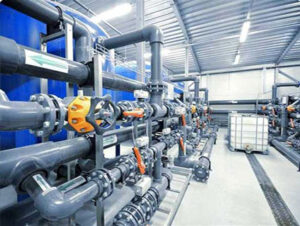Finding the right person feels like magic, but there’s actually science behind why some people connect effortlessly while others struggle to find their match. Understanding the psychology and research behind romantic compatibility can help you navigate the dating world more effectively and recognize genuine connection when it happens.
Whether you’re actively dating or simply curious about human attraction, the factors that influence successful matching go far beyond surface-level preferences. From psychological compatibility to timing, several key elements determine whether two people will form a lasting bond.
What Makes People Compatible?
Shared Values Matter More Than Common Interests
While having similar hobbies can be nice, research shows that shared core values predict relationship success far better than matching interests. Couples who align on fundamental beliefs about family, career priorities, financial goals, and life philosophy tend to experience greater satisfaction and longevity in their relationships.
This doesn’t mean you need to agree on everything. Successful couples often have different tastes in music, movies, or recreational activities. The key is alignment on the bigger picture—what you both consider important in life.
Complementary Personality Traits
The saying “opposites attract” contains some truth, but it’s more nuanced than it appears. Successful matching often involves complementary rather than identical personalities. For example, an introverted person might thrive with a partner who’s slightly more outgoing, helping them feel more comfortable in social situations without overwhelming them.
Psychologists have identified several personality dimensions where complementarity works well:
- Energy levels that balance each other out
- Communication styles that mesh effectively
- Problem-solving approaches that cover different strengths
- Social preferences that create healthy balance
Emotional Availability and Timing
Even perfect compatibility on paper won’t create a successful match if either person isn’t emotionally ready for a relationship. Timing plays a crucial role in romantic success. Someone might be the ideal partner, but if they’re dealing with major life transitions, career changes, or personal growth periods, the matching process becomes much more challenging.
Emotional availability involves being open to vulnerability, ready to invest time and energy in another person, and having the capacity to handle the ups and downs of building a relationship together.
The Role of Physical Attraction in Matching
Beyond Surface-Level Appearance
Physical attraction remains an important component of romantic matching, but it’s more complex than simply finding someone conventionally attractive. Research indicates that attraction often grows over time as emotional connection deepens, and many successful couples report that their partner became more physically appealing as they got to know them better.
Factors that influence physical attraction in the matching process include:
- Body language and confidence
- Personal style and self-presentation
- Facial expressions and smile frequency
- Voice tone and speaking patterns
The Importance of Chemistry
Chemistry represents the intangible spark that makes matching feel effortless. While difficult to define scientifically, chemistry typically involves a combination of physical attraction, emotional resonance, and natural conversational flow. When chemistry exists, interactions feel energizing rather than draining, and both people find themselves wanting to spend more time together.
How Modern Dating Has Changed Matching
The Impact of Dating Apps
Technology has fundamentally altered how people approach matching. Dating apps have expanded the pool of potential partners while simultaneously making the process feel more transactional. The abundance of choices can create decision fatigue and make people less likely to invest deeply in getting to know any single person.
However, apps have also enabled connections between people who might never have met otherwise, breaking down geographical and social barriers that previously limited matching opportunities.
The Speed of Modern Romance
Contemporary dating culture often emphasizes quick decisions about compatibility. People might swipe through hundreds of profiles in minutes or decide after a single date whether someone is worth pursuing. This rapid-fire approach to matching can prevent the slower development of attraction and connection that characterizes many successful long-term relationships.
Taking time to truly evaluate compatibility—beyond initial impressions—often leads to better matching outcomes.
Red Flags That Prevent Successful Matching
Misaligned Communication Styles
When two people have fundamentally different approaches to communication, matching becomes extremely difficult. Warning signs include:
- One person being consistently much more responsive than the other
- Frequent misunderstandings despite good intentions
- Different preferences for conflict resolution
- Incompatible needs for emotional expression and support
Unrealistic Expectations
Some people approach dating with such specific or unrealistic criteria that successful matching becomes nearly impossible. Having standards is healthy, but being inflexible about superficial preferences while ignoring deeper compatibility factors often sabotages potential connections.
Lack of Self-Awareness
People who haven’t done the work to understand their own needs, triggers, and relationship patterns often struggle with matching. Without self-awareness, it’s difficult to recognize genuine compatibility or communicate effectively about what you’re looking for in a partner.
Practical Tips for Better Matching
Focus on Connection Over Perfection
Rather than searching for someone who meets every item on your ideal partner checklist, pay attention to how you feel when you’re with different people. Successful matching often involves finding someone who brings out your best qualities and makes you feel comfortable being yourself.
Give Relationships Time to Develop
The most meaningful connections often start slowly. Instead of making quick judgments about compatibility, consider giving promising matches several dates to develop. Many couples report that their attraction and connection deepened significantly over time.
Communicate Your Needs Clearly
Successful matching requires honest communication about what you’re looking for in a relationship. This includes being upfront about your long-term goals, deal-breakers, and relationship style preferences. Clear communication helps potential partners determine whether they’re truly compatible with you.
Work on Personal Growth
The best preparation for successful matching is becoming the healthiest version of yourself. This involves addressing past relationship patterns, developing emotional intelligence, and building a fulfilling life independent of romantic partnership. People who are genuinely happy with themselves tend to attract healthier relationships.
Building Something Lasting
Understanding the science behind matching can help you make better dating decisions, but remember that successful relationships require ongoing effort from both people. Even perfectly matched couples need to continuously choose each other, communicate effectively, and grow together over time.
The goal isn’t to find someone who never challenges you or requires compromise. Instead, look for someone whose challenges help you grow and whose differences complement your strengths. True matching creates a partnership where both people become better versions of themselves.












+ There are no comments
Add yours